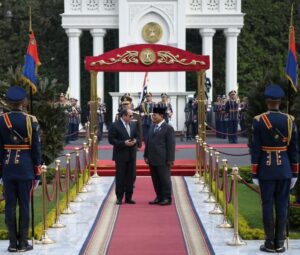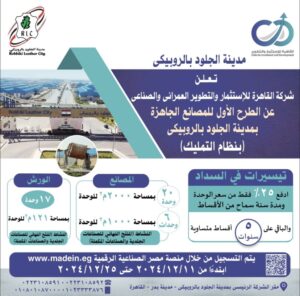Was the Ottoman occupation of Egypt an invasion or a conquest?
A response to those who falsely claim that it was a conquest and not an occupation
At first, in response to those who falsely claim that the testimony of Ibn Ias is wounded by the former and present Ottomans who say that it was an opening and a succession to the saying (who marries my mother I say to him, uncle) and they are in fact of Turkish origin who lived in Egypt until today and only read what the Ottomans wrote.
Hence, I had to start by talking about who is the son of many in his book The Beginnings of Flowers in the Facts of the Dhor, and then recount the events as narrated by our reading of the book.
He is Mohammed bin Ias al-Hanafi, the author of a book of flowers in the facts of the dhows, who lived through the events and wrote them as saw by The Opinion of the Eye, whose testimony is one of the most important books written in this regard for his contemporary of these dangerous events and their consequences.
The new Ottomans from Turkish origins in Egypt and the Muslim Brotherhood falsely stated that Ibn Ias was a remnant of the Brotherhood just as they called on the honorable Egyptians who resisted them for the love of the Egyptian state and protecting it from chaos in the disaster of January 25th with the remnants.
Their false claim does not mean that we erase from the history books that everything that eyewitnesses wrote for every crime that occurred against the country means that he was affected by that crime and therefore his testimony is wounded. This does not mean, according to their false thinking, that we erase what John al-Meqousi wrote about the Byzantine occupation of Egypt, what Ibn al-Atheer wrote about the Mongol invasion of the Levant, what the Alexandrian Nouiri wrote about the Frankish invasion of Alexandria in the mid-14th century, and what al-Jabriti recorded about the French campaign, and Abdel Rahman al-Raghi’s invasion of British occupation. What if we ask them to disqualify the views of the contemporary Ottomans of the Ottoman Empire’s wars with Russia in some battles from Istanbul, considering that their testimony is wounded?
With their ignorance, they claimed that Ibn Ias was a remnant of the Mamluks, and he was not the son of Ias Mamluks, but he was called the son of the people, and the son of the people was his father and grandfather, one of the ancestors of the Mamluks, who brought young people, lived, and were born free and untouched by slavery, and became the official cleaner, scientist, jurist, historian, soldier, merchant and craftsman, and most of them could not be considered if not all of them were Mamluks.
With their ignorance, if they read a book of flowers in the facts of the dhows, they knew that he did not compliment great and did not hypocritically be a sultan to gain favor, but he was very harsh and heavy on Sultan Qanswa al-Ghuri in his policies and works, and he was not one of those who harassed the office holders to gain favor, as he experienced several sultans, Qaitbay and his son, Jumblatt and Toman Bay I, and Al-Guri and Toman Bay II And if they read the book, they will find no sign that he sought their satisfaction, for a purpose or benefit, but he was insulting the occupier Salim I and his work is a traitor to you (historically described as a traitor to you).
Ibn Ias was one of the most prominent people of his time in the writing of history, all his attention to the conditions of the public was looking at things from their angle and conveying their vision of events and facts.
It was the era of Ibn Ias, the era of great historians, the son of Taghreed Bardi, the son of Ashkelani, the Siuti who was educated by the son of Ias on his hands, the son of Aja al-Halabi and the banking core, and then the son of Ias himself. No wonder the new Ottomans claimed ignorantly and falsely on one of the most important historians that his testimony was wounded, to satisfy a disease in himself, some of whom flattered the new Ottomans from the Brotherhood, most of whom adored false fame, excelled in writing books and media and did not leave television channels, but they began to get lost in their money and what they did not have in it.
Now I present the most important things in the book, from the Ottomans crossing gaza’s border with Egypt, to the execution of Toman Bay by hanging at Bab Zweila Atwama in sequence of events as stated in the book.
News arrived in Cairo on the 12th of Dhul-Hijja in 922 Hijri about the Ottomans’ penetration of Egypt’s border with Gaza and their arrival in Al-Arish, and Toman Bay began digging trenches around Cairo, erecting fortifications, erecting cannons and moving the market so that soldiers could buy supplies and announced the general mobilization between the Generals and Mamluks who failed to station around the fortifications and held the ottoman army to reach them. The Ottomans arrived in Belbes and Eastern El Ni, whose people emigrated to Cairo, forcing Toman Bay to burn the grain stores surrounding Belbes so that they would not fall into the hands of the Ottomans. Meanwhile, the Arabs were changing the Ottomans, abducting some of their soldiers, beheading them and sending them to Cairo to hang on to their doors to raise morale among the people. In an Ottoman attempt to assassinate Toman Bay, a masked and armed man was brought into his tent and arrested by soldiers to discover that she was a Turkmen woman who had her head stood up and hung with the heads of the Ottomans.
The Ottomans arrived in the Baraka al-Hajj area north of Cairo and the army was ready to confront, at the Red Mountain in preparation for a fight, as Toman had expected, that could be prolonged.
The Ottomans reached the meeting point, and a terrible battle broke out in which the Mamluks were so dominant that the Ottomans lost their first minister Sinan Pasha to death, and the cuff was initially in favor of the Egyptians.
The Ottomans gathered their winters and split into two divisions, the first of which attacked Camp Toman Bay in the Redania area, killing many of its commanders, seriously injuring the military and breaking his thigh and fleeing. The second division turned around the Red Mountain to surprise the Egyptian army, which was defeated and retreated, and Toman Bay remained stationary in the field with a few of his soldiers and fearing the families fleeing to the Tora region.
The Ottomans rushed to The Toman Bay camp, looting the cannons, and they swooped down on Cairo, ruthlessly invading it. They began with what modern-day jurists imitated on January 25, 2011, by invading prisons to release their captured killers, who were mostly merchants in Cairo during the outbreak of the war, and with them the criminal ized egyptians who took advantage of the Ottoman attack on the homes of princes and dignitaries, looting and stealing until panic spread among Egyptians. They kidnapped the mules of mills, Jamal al-Sakayan and a group of black children and slaves, and the kidnapping and looting continued until after sunset, and then they attacked Shaun the wheat in Bulaq and took over its grains.
The son of Ayas records the statement of one of the witnesses to the incidents in Abyat:
we cry for Egypt and its people It’s ruined its pillars.
and I became oppressed with humiliation After cairo was
On the last Friday of the year 922 Hijri, Salim I, the caliph entrusted to God, after his capture after the defeat of the Mamluk army in Damascus, to Egypt, and with him the Mamluk Prince Khayir Bey (Khain Bey), the ruler of Aleppo, who betrayed the Mamluks in favor of the Ottomans and withdrew his soldiers from the position of Marj Dabiq in The Levant in the hope of rewarding his Ottomans. We call on the Caliph’s procession to be safe for the people of Egypt and the continuation of the movement of selling and buying (and no one confuses any of the people) and it was a lie and a deception (just as the modern-day Ottomans took it from the Muslim Brotherhood and Hamas in January 2011 with their false promises to the Egyptians) and we would like to report any hidden Jeerxi property and those who do not guide him hanged at the door of his house. And the prayers rose on the cairo platforms of the Ottoman Sultan Salim I ( that he supported, God, Sultan bin Sultan Malik Al-Barin, Bahrain, Kaser al-Jaishin, Sultan of Iraq, and the Custodian of the Two Holy Mosques, The Triumphant King Salim Shah, say here ibn Ias text (the end of the year with war and disdain, he got the people the ends of the damage, and they had an incident from their Lord, this was by justice and destiny) and you do not like if the son of Ias was in Egypt in January 2011, he would have said the same words.
At the beginning of the year 923 Hijri, Ibn Ayas recorded the facts of the pursuit of the Seconds of the Mamluks, their violation of the rights of Egyptians, and the arrest of your military members who were injured in the battle of Redania and abused and then killed. The Ottomans raided cemeteries, neighborhoods and stables and killed all those who hid them and all those who suspected him until some of the honorable people were unjustly killed and hung their heads on columns after the heads were high and the soldiers stopped all those who suspected him and said you are Gerxi (buy yourself from the saying with something) so he gives them money what he buys himself and they start raiding the houses of nobles from the Mamluk era to seize their cash wealth and in kind (It seems that their soldiers in the modern era are thieves like their own, they went as soon as they entered kurdish areas in Syria stealing household birds from ducks, geese and chickens, and they were photographed and published at the time)
On the third of Muharram, Salim I broke Cairo from Bab al-Nasr to Bulaq, where he set up his camp, and Ibn Ayas records Salim’s first saying in his camp before entering Cairo (tomorrow enter Egypt and play with the sword in its people).
On the 5th of Muharram of the same year, after the evening prayers, Toman Bay surprised his troops Salim I in his camp with the commoners throwing stones at the Ottomans and called that those who killed an Ottoman had his clothes and weapons to come with his head to the camp and the Mamluks took control of Cairo in part and then the Ottomans hated the Mamluks and expelled them from the central island by nile and Bulaq and launched an attack on a corner in the area of Nasiriyah and killed all those in it in a massacre Horrible. Toman Bay tried to barricade himself in some large mosques, but his men were withdrawing from fear, and indeed the Ottomans raided the mosques and took control of the ancient area of Egypt, broke into The Tomb of Mrs. Nafisa, trampled her grave and ransacked what was in it, then went to al-Mu’ayyad mosque and their snipers took up his minaret and opened bullets on the residents to prevent them from breaking into the door of Zweileh to help Toman Bay and his men, and some of the people were able to rise the minaret and kill snipers.
During that incident, the prayers for Toman Bay, the Mamluk sultan, rose on the platforms of Cairo, but the failure of his soldiers soon caused him to defeat him after three bloody days, forcing him to withdraw from Cairo.
The Ottomans rushed to Cairo to burn down the mosques where the Mamluks were holed up and killed as the people they met, and Ibn Ias counted the death toll that day at 10,000. They raided the Al-Azhar Mosque, Ahmed bin Toulon Mosque, neighborhoods and houses, and unjustly killed the people, and all those who captured him killed him, then beheaded him and dumped his body in the Nile. Ibn Ias likened these massacres to the invasion of Egypt by Babylonian King Nebuchadnezzar, who was a rich man of ancient times, and the invasion of Baghdad by Hulako.
Finally, Salim declares safety and stops fighting, and in fact his soldiers used to attack the commoners, stealing them and (stripping their clothes and stealing their turbans) on the way.
While Salim I was organizing the affairs of his new state and called for safety for the Mamluk princes if they surrendered to him, about 54 of them went to him, and he gathered them, reprimanded them, and then locked them in the castle, and it was related to the news that Toman Bay had gone to Uppers and in the meantime received a letter from Toman Bay asking for safety, salim prepared an embassy from some former Egyptian judges to send him to answer his request and it seems that it was a maneuver from Toman Bay, who was texting some of his former men Inciting them to join him, and at the same time he sent Salim to reconcile him to return to rule under the authority of the Ottomans as their deputy or go out to him in Giza in a decisive battle in which God will rule for whoever he wants and conclude by asserting that he does not offer this for fear of fighting or fear for himself (but reconciliation is better to preserve the blood of Muslims).
Successive events have caused famine in Cairo and It is rumored that Toman Bay prevents grain ships from going from Upper Egypt to Cairo, Somal Salim to answer his initiative and send the embassy that he prepared before. Then there were reports of some Arabs and Mamluk soldiers attacking the embassy and killing some of them, and it became clear that this correspondence was nothing but a maneuver by Toman Bay to give himself time to organize his ranks, a sound anger and took Toman Bay responsible and initiated the execution of the Mamluks imprisoned in the castle and threw their bodies in the streets until the wives of some of them had to bribe the executioners to give them the bodies of their husbands to bury them.
On the 28th of 00, the Ottomans reached the news of the arrival of the vanguard of The Toman Bay forces in Giza, and then the last battle on the 10th of the first spring prevailed in the first place for the Mamluks, but they collapsed in front of the bullets of the Ottomans, defeat and Toman Bay escaped the lake and the Ottomans broke Cairo with a procession, led by the heads of the dead Mamluks and Arabs of the Army of Toman Bay.
Finally, Toman Bay had fled to the lake as a refugee for Sheikh Hassan bin Merhi, who had one day saved him from the imprisonment of the former Sultan Qanswa al-Ghuri, expecting to be remembered by the Sheikh, who swore seven times on the Qur’an not to hand him over to his enemy, but Ibn Merhi betrayed him, reported him, and arrested him and carried him to Sultan Salim, who kept him in captivity for 17 days and was rumored to have exiled him to Mecca. It is also rumored that he may make him his deputy in Egypt.
After the end of the period, they took him out of his lock and walked him to Bab Zweila (he does not know what to do) and walked and walked and threw peace at the people who had gathered for the Ottomans until he reached the door and saw a gallows erected, and he realized his fate, so he turned to people to read fatiha and read it with them and said to the executioner (do your job) and hanged him after he cut the gallows rope twice. “When he was hanged and his soul came out, people shouted a great cry at him, and he was so sad and sorry,” he concluded, “”Then he went to count the merits of the last Mamluk sultan who was in his early 40s and was not hanged by another sultan at Bab Zweila.”
Was Egypt an infidel, non-Muslim country an enemy of Muslims until they claimed that the Ottoman occupation of Egypt was fatah?
Have the first Muslims in their conquests massacred, killed and looted?
• The Ottomans created chaos and broke into prisons, releasing their prison saddles and criminals to spread chaos and terrorize people.
They desecrated mosques, broke into them, killed all those who took refuge in them, trampled The Tomb of Mrs. Nafisa and stole what was in it, was it an opening?
What is like yesterday’s Brotherhood are the same Ottomans yesterday
May Allah fight them and divide them and save Islam from their evils






المزيد من الموضوعات
استقبل الرئيس السيسي، اليوم، رئيس جمهورية إندونيسيا “برابوو سوبيانتو”، الذي يقوم بزيارة رسمية إلى مصر
القاهرة للإستثمار تدعو مستثمري صناعة الجلود المصريين والأجانب بالتقدم على حجز 43 مصنع كامل التجهيزات بالروبيكي…
نائب رئيس الوزراء وزير الصحة مصر أول دولة تحقق أهداف مكافحة فيروس «بي» في إقليم شرق المتوسط…